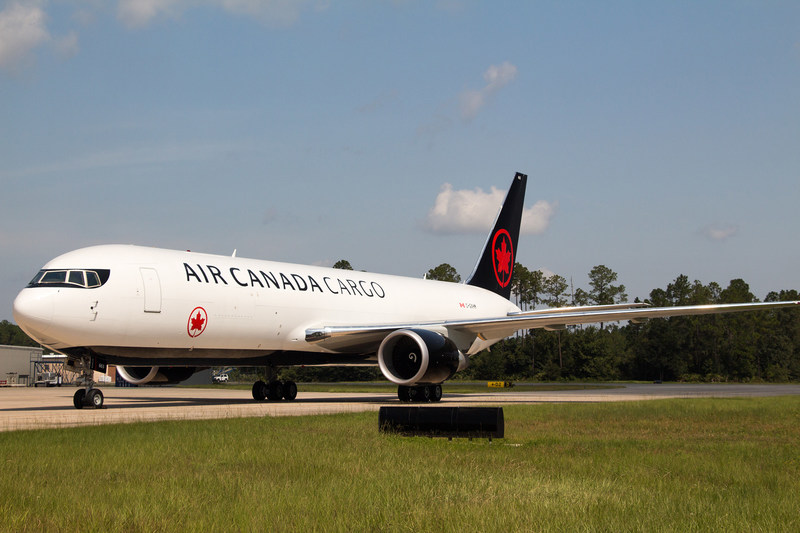Air Canada sees cargo revenues slide in 2022

Air Canada saw its cargo revenues decline last year due to the ending of its pax-freighter operations and lower yields.
The Montreal-headquartered airline registered a 15% decline in full-year cargo revenues to C$1.3bn, while fourth quarter revenues were down 41% to C$288m.
However, the airline pointed out that compared with pre-Covid 2019 full-year cargo revenues were up 77%.
The airline said that the year-on-year decline reflected a decline in its Pacific market volumes as its temporarily converted passenger aircraft gradually returned to passenger operations.
The airline operated more than 3,600 cargo-only flights last year compared with 10,200 in 2021.
To a lesser extent, “yield normalisation”, mainly in the US transborder, domestic and Atlantic markets, also affected revenue performance.
The decline was partially offset by increased capacity and higher traffic in the Atlantic and Central and South American markets and strong yields on the Pacific.
Jon Turner, vice president, cargo, Air Canada, said: “As Air Canada returned all temporarily converted passenger aircraft back to their core mission of flying passengers, the cargo team continued to grow market share across some of the largest global trade routes.
“The results achieved during this transition year validate our long-term growth strategy for Air Canada Cargo. In 2022, we introduced our second and third freighters and opened 13 new freighter markets.
“As we look forward to 2023 and prepare to welcome four additional [B767] freighter aircraft this year, we remain laser focused on building a freighter program that complements our global passenger network and ensures shippers have access to reliable, year-round capacity.”
The carrier will take delivery of a further two B767 freighters in 2024 as well as two B777Fs. In total, the airline’s cargo fleet will stand at 11 aircraft (nine B767s and two B777s) by the end of 2024.
